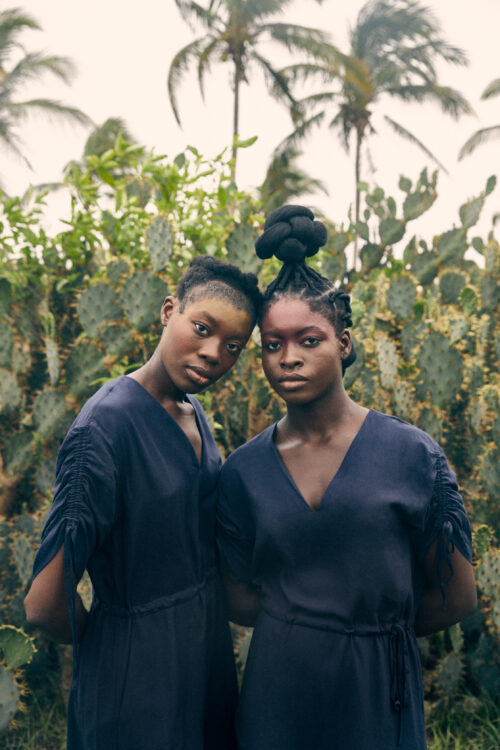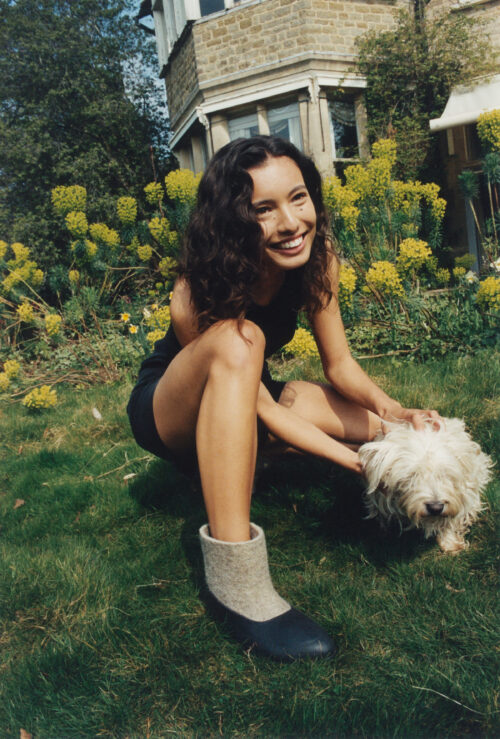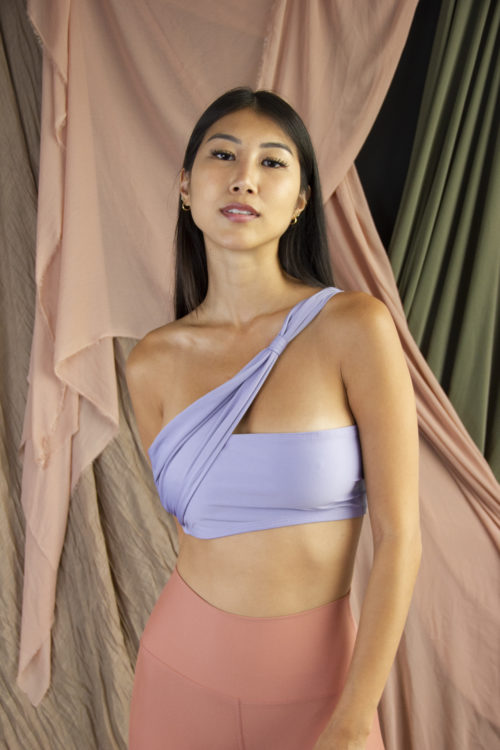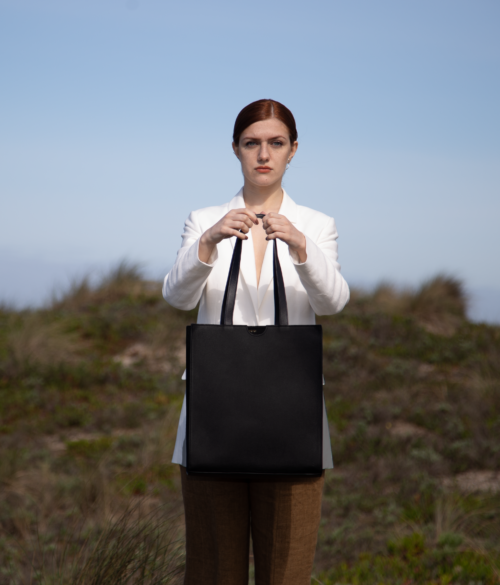Everyone loves the boutique, small-batch, sustainable brands that are springing up everywhere. But they’re often expensive and people still rely on high street fashion chains for the bulk of their wardrobe.
ARMEDANGELS is proving that radically sustainable fashion at scale is possible – they’re taking on high street fashion chains by matching price points without compromising on style or sustainability. From the simple idea of printing T-shirts and collecting donations for charity projects, they have grown into a company that is now one of the largest eco and fair fashion companies in Europe.
When ARMEDANGELS discovered that Togo has the most women leaders in all of Africa, they decided to celebrate this country’s empowering female leaders with their summer dresses campaign. Lensed by Togolese-German photographer Delali Ayivi, featuring an inspiring cast of women who all work in their own special ways to preserve the environment and culture of Togo. And each one finds their favourite look among the latest range of easy, breezy silhouettes made from innovative 100% Lyocell TENCEL™ and LENZING™ ECOVERO™ fabric, some of these even carbon-neutral fabrics.
Meet Togo´s changemaking women
We had the opportunity to interview some of the women – Here are their stories:
Aimée Abra Tenu Lawani
Aimée is a social entrepreneur committed to protecting the environment and uplifting Togolese craftsmanship. Her NGO, STEJ Togo, has been the catalyst for several enterprises including Zam-Ké, a line of accessories created from upcycling plastic bags, and Kari Kari Africa, which offers artisanal, organic soaps. Her endeavours support a woman’s collective making shea butter and a farm dedicated to agroecology as well as providing employment for inmates at local prisons.
What was the moment when you decided to make a difference?
Growing up, my dream was to be a journalist and when I was 13, I won a competition to present a radio programme on children’s rights. Through this, I learnt that there were many children who weren’t so fortunate as me. Very quickly I set up my NGO through which I have done many projects addressing recycling, drinking water and sanitation. I am surrounded by a great team of young people who understand the importance of coming together for a better world.
What does a better world look like to you?
A world of peace, justice, equity and friendly relationships among people in our communities. If we are committed, we can put in place projects to implement this vision and make it a reality. And in our daily activities, we can set an example. We can respect others, give value to local raw materials and ancestral traditions and pay employees fairly.
What motivates you?
Making an impact with all of my initiatives is my motivation. I studied in Lyon. I could have stayed in France and just gotten a normal job. But have a child and a step child and want to leave behind a pure world where they can breathe, travel and discover the wonders of this planet; its people, cultures and ethnics. I really want to offer them these riches. So, every step I take today, I think of tomorrow.
Adjowa Koufam
Adjowa is a civil servant working in Togo’s Ministry of Environment as well as the national secretary general of the African Women’s Network for Community Forestry Management (REFACOF). In addition, she has founded an association called Women Committed to Local Development. Throughout her career, she has been dedicated to fighting deforestation and global warming across Africa.
What do you do to make change in Togo?
My contribution is to encourage women to take an interest in public affairs and in the management of the city through the protection of natural resources. Through my association, we also educate rural women about how to create community forests, which is two birds with one stone because these forests allow women to finance themselves and improve the environment of Togo. Togo has the highest number of women in management roles in Africa. Is this something you feel makes a difference? Yes it does. In recent times, the government has begun to entrust the management of our country to women. For example, the head of the National Assembly is a woman and our prime minister is a woman. Female leadership is on the march in Togo.
What would a better world look like?
A better world is one where public goods are managed fairly, where nature is restored to its full glory and we live surrounded by forests. My vision is to encourage everyone to take an interest in protecting nature.
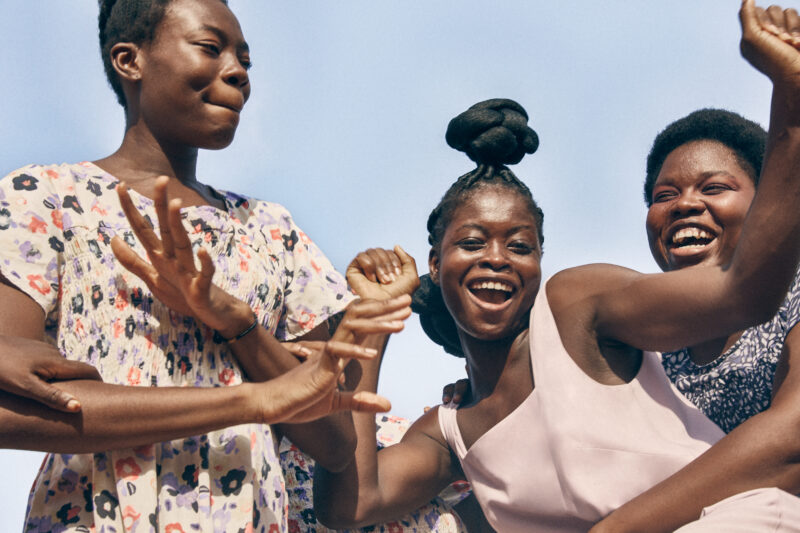
Afi Sitsofe Déborah Dali
Déborah is a medical student in her final year of studies. She gives her free time to the environmental club at her university, which goes into the local neighbourhoods several times a week to clean up the streets. She also visits schools to educate children about the use of plastics.
What was the moment when you decided to make a difference?
At school everyone would make fun of me and call me ‘Miss Clean’ for always picking up litter. But once I got to university I realised that our environment is really suffering and so that’s when a group of us created the environmental club. We organise ourselves to go out and clean up. We also encourage others to stop putting rubbish in the gutters, which prevents the water from flowing, and to throw away the artificial hairs that girls often use on the street, which can become an obstacle for animals.
What would a better world look like?
A better world is where there is love for one’s neighbour and respects each other. I would like everyone to realise that the environment is in danger and to take responsibility for it. Change starts with ourselves. If you are authentic, live by your principles and are kind to people, then that can inspire others.
What is the biggest obstacle to change and how do we overcome it?
The biggest obstacle is mankind. Humans are the ones that caused environmental degradation. So, if we manage to change society’s mentality and improve our behaviour towards nature, then we will have succeeded in changing the world.
Delali Ayivi
Delali is a Togolese-German photographer based in London and Lomé. In 2021 she was selected for FOAM Talent, Photo Vogue Festival and the National Portrait Gallery’s Taylor Wessing Photography Prize. She has shot this campaign for Armed Angels in collaboration with her friend Malaika Nabillah, with whom she has also built Togo Yeye, an ongoing visual project celebrating Togo’s young creative community.
What was the moment when you decided to make a difference?
As a teenager, I started reading important literature and having conversations with my friends about how the diaspora can interact with those living in our home countries. And then through my photography, I learnt to add diversity to the images of Black identities and Black cultures. In my case, I can offer an insight into what it means to be Togolese and to live in the Togolese diaspora in Europe.
What motivates you?
With Togo Yeye, and my other collaborative projects with Malaika, having control over our images is what’s important. What do we want the world to see of our country and of our creatives? We know how much an image can say about culture and identity and that it has the power to change people’s perceptions. That’s what drives us hugely. Also, we’re just so passionate and have so much energy when we go out to shoot and are always seeing new things we want to capture.
What can we all do to make change?
It can feel overwhelming to think about this because there are so many things that need to change. So, I think the best mentality is focussing on your corner of the world and finding something that drives you and then you can move from there. For Malaika and I, our big dream is to strengthen the creative community in Togo so that it can have more chances internationally.
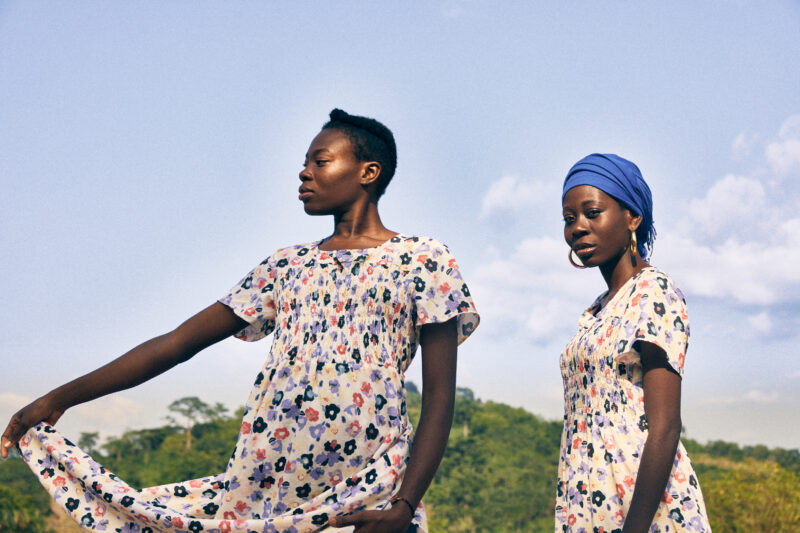
Malaika Nabillah
Malaika is a medical student, creative director and textile designer. Her brand Capzules offers locally printed batik and wax print fabrics. She produced this campaign with her friend Delali Ayivi and together, they have also developed Togo Yeye, an ongoing visual project exploring Togo’s identity through the eyes of the country’s young fashion and art creators.
What does a better world look like?
A better world is where everyone is more responsible and more ecological. Today we have become too capitalist and individualistic and less open to the world around us. But we need to take care of the environment in order to take care of ourselves. So, we should try to have good will in everything we do, to have more determination and work side by side with others with compassion.
Togo has the highest number of women in management roles in Africa. What does female empowerment mean to you?
The fact that women in Togo have started to hold major political positions incites young girls to do so much more. In Africa, women don’t usually occupy these kind of positions so the fact that women have more visibility here helps us to be independent. In my own family, it was my mother who was in charge of everything, so she set a good example for me and now I want to motivate women to focus on what they want to do and stop putting limits in their capacities.
What motivates you?
It’s the friendship and collaboration that Delali and I have established that motives me. It’s one based on trust, equality and equity, and that in turn can inspire other people in Togo and the diaspora to work together. It wasn’t easy at first because people presumed I was Delali’s assistant because she’s in the diaspora. But we have overcome that mentality and prove that you can work hard together as women to obtain your goals.

